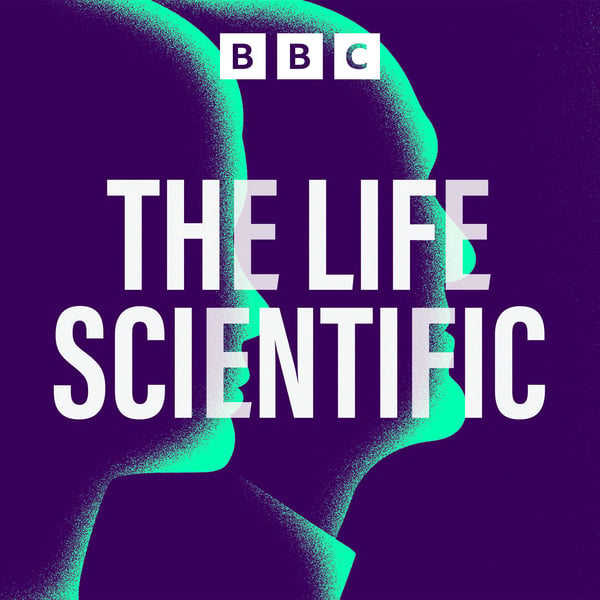Brian Schmidt on Nobel Prize-winning supernovae and the joys of making wine
The Life Scientific
BBC
4.6 • 1.4K Ratings
🗓️ 22 April 2025
⏱️ 29 minutes
🧾️ Download transcript
Summary
Have you ever pondered the fact that the universe is expanding? And not only that, it's expanding at an increasing speed - meaning everything around us is getting further and further away?
If that isolating thought makes you feel slightly panicked, don't worry: this programme also contains wine!
Brian Schmidt is a Distinguished Professor of Astrophysics at the Australian National University, known for his work on supernovae: massive explosions that take place when stars come to the ends of their lives. They are among the most energetic events in the universe and incredibly difficult to find; but that’s what his High-Z Supernova Search Team did, identifying enough of these rare and distant explosions to measure just how fast they were moving away from us.
This led them to the realisation that, contrary to long-held belief in cosmology, the expansion of the universe was speeding up; a discovery which earned Brian a share of the 2011 Nobel Prize for Physics. As if that wasn't enough, he's gone on to discover one of the earliest stars in the universe; run a university; and become a winemaker, at his very own vineyard just outside Canberra.
In a conversation spanning the genius phraseology of writer Douglas Adams, the importance of pisco sours, and the similarities between astronomy and viticulture, Brian tells Professor Jim Al-Khalili how his supernovae breakthrough paved the way for a revolution in astronomy - and where the field needs to go next...
Presented by Jim Al-Khalili Produced for BBC Studios by Lucy Taylor
Transcript
Click on a timestamp to play from that location
| 0:00.0 | You're about to listen to a BBC podcast, but this is about something else you might enjoy. |
| 0:05.4 | My name's Katie Lecky and I'm an assistant commissioner for on demand music on BBC Sounds. |
| 0:10.8 | The BBC has an incredible musical heritage and culture and as a music lover, I love being part of that. |
| 0:17.5 | With music on sounds, we offer collections and mixes for everything, from workouts to |
| 0:22.4 | helping you nod off, boogie in your kitchen, or even just a moment of calm. And they're all |
| 0:28.1 | put together by people who know their stuff. So if you want some expertly curated music in your |
| 0:34.1 | life, check out BBC Sounds. You're about to listen to the latest series of the Life Scientific. |
| 0:40.3 | Episodes will be released weekly wherever you get your podcasts. |
| 0:44.3 | But if you're in the UK, you can listen to the latest episodes |
| 0:48.3 | 28 days before anywhere else, first on BBC Sounds. |
| 0:53.3 | BBC Sounds, music on BBC Sounds. |
| 0:57.6 | BBC Sounds, music, radio, podcasts. |
| 1:03.6 | Today, it's a bit of a dream show for me because I get to talk about physics and wine. |
| 1:09.0 | It doesn't get much better than that. My guest is a Nobel Prize winning astronomer who threw the proverbial cat amongst the pigeons in the late 1990s, |
| 1:13.2 | when he announced that, contrary to long-held belief in cosmology, the expansion of the universe is speeding up, |
| 1:19.9 | with everything around us moving further and further away. We'll unpack that rather isolating thought in a moment. |
| 1:26.9 | Brian Schmidt is a distinguished professor of |
| 1:29.4 | astrophysics at the Australian National University, known for his work on supernovae, massive explosions |
| 1:35.4 | that take place when stars come to the ends of their lives. They're among the most energetic |
| 1:40.8 | events in the universe and incredibly difficult to find. However, that's what his research |
| 1:46.4 | team did, identifying enough of these rare and distant explosions to measure just how fast |
| 1:52.8 | they were moving away from us. Their work helped pave the way for a revolution in astronomy. |
... |
Please login to see the full transcript.
Disclaimer: The podcast and artwork embedded on this page are from BBC, and are the property of its owner and not affiliated with or endorsed by Tapesearch.
Generated transcripts are the property of BBC and are distributed freely under the Fair Use doctrine. Transcripts generated by Tapesearch are not guaranteed to be accurate.
Copyright © Tapesearch 2025.

